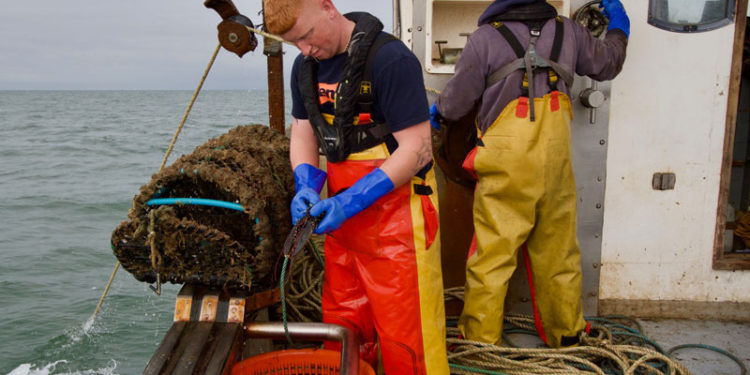As part of the preparation for the implementation of the ILO C188 Work in Fishing Convention, the first meeting of a special Fishing Industry Safety Group (FISG) to develop a voluntary safety management code was held at the NFFO office in York.
The UK’s federations proposed the development of a voluntary safety management system (SMS) to help co-ordinate the preparation of the ILO C188 Work in Fishing Convention due early next year. The Convention will apply to every fisherman and owner in the UK with requirements for the first time on items such as medicals, crew agreements and safety management.
‘The Fishermen’s Mission welcomes ILO C188 particularly for the focus on appropriate terms and conditions for those working in the UK fishing industry which it is hoped will improve the overall welfare ‘offer’ and reduce deprivation and suffering,’ said David Dickens, Chief Executive at the Fishermen’s Mission.
The FISG Project Group will develop a Safety Management System that can be self audited, and as all owners and crews will need to make significant changes to their current practices, the code will ensure that the UK’s fishermen will have the support of an organised and structured system to help make the necessary changes required.
‘ILO C188 is perhaps the biggest change to safety that the Industry has encountered in a generation. Because of this MCA and Industry have been working together to ensure any legislation and guidance is practical and realistic. Most of all however, it must be as straightforward as possible to comply. By developing a Safety Management System, we aim to help fishermen do this,’ commented David Fenner, the MCA’s Head of Fishing Safety.
The C188 Work in Fishing Convention was agreed by the International Labour Organisation of the United Nations in 2007 with the aim of improving the conditions of work for fishermen worldwide. It comprises 54 Articles covering minimum requirements for working on board fishing vessels, conditions of service, accommodation and food, medical care, health protection and social security. It was due to be implemented in the UK early in 2018, but the expected 16th November 2017 ratification date has been put back due to the surprise UK election earlier this year.
The introduction of similar codes in the Merchant Navy and for domestic commercial vessels have reduced accidents significantly. Development of a safety management code for fishing vessels will hopefully mirror the benefits of these existing codes, but may also benefit from learning from the burden imposed by them also.
‘We see no value in increasing paperwork, we want to focus on increasing safety and welfare,’ said said NFFO safety officer Robert Greenwood. ‘At every stage we will be ensuring that actions speak louder than words in safety, but with any process there will be paperwork, but this will hopefully be helpful to the owners and crews.’
The project involves maritime charities the Fishermen’s Mission and Human Rights at Sea, both of which are known for their welfare and human rights support, advice and contributions to the industry as well as the ILO C188 preparations.
Typically, the work of FISG has been around the materials of fishing, such as machinery, vessels and PFDs but the Convention will affect the way people work and the project seeks to get a clear understanding of all the complexities of law and will focus on delivering what is right for the individuals involved.
‘The addition of explicit reference to the need for welfare support and associated policies in terms of both legislative inclusion and action points for formal auditing under FISG’s lead as part of the Safety Management System is a key improvement that should not be under-estimated,’ said David Hammond, CEO of Human Rights at Sea.
This SMS will give every fishing vessel owner in the UK the support needed to help them become compliant with the ILO C188 changes by February 2018. Two UK-wide schemes, the Responsible Fishing Scheme and the free SafetyFolder.co.uk website are already involved in this project to ensure that they can align with the SMS. The Safety Folder has already started to trial its SMS with Sea Source in Northern Ireland, and will be discussing it with the Welsh Fisherman’s Safety Committee in August.
‘For our fishermen in Wales and hopefully the rest of the UK, the SafetyFolder is a great way to deliver the ILO C188 requirements in a staged and sensible manner,’commented Trevor Jones, Safety Officer for the Welsh Fisherman’s Association.









